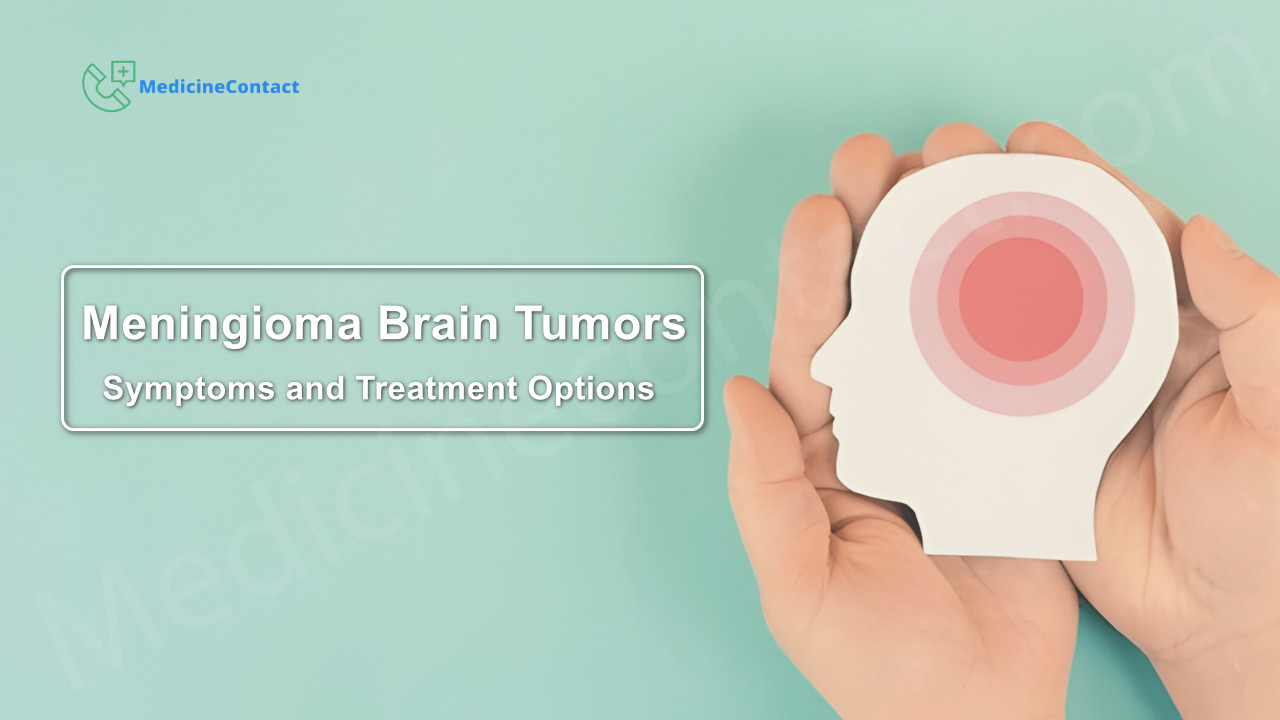
Introduction
Every year, thousands of individuals are diagnosed with brain tumors, significantly impacting their lives. Among these, meningioma brain tumors stand out due to their unique characteristics and prevalence. As a type of tumor originating from the meninges—the protective layers surrounding the brain—meningiomas play a crucial role in neurology. While often benign, their location can lead to severe complications.
Recognizing symptoms early is essential for timely diagnosis and treatment. Common signs include headaches, seizures, and memory issues, which may vary based on the tumor's location. Early detection can make a significant difference in managing the condition and improving quality of life.
This article will cover:
- The basics of meningiomas
- Recognizing symptoms
- Diagnostic imaging tests
- Treatment options
- Recent advancements in treatment
- Coping strategies and support resources
Understanding these aspects can empower individuals and healthcare professionals to address meningiomas effectively.
Understanding Meningiomas: The Basics
Meningiomas are tumors that form in the meninges, which are the protective layers around the brain and spinal cord. These layers include the dura mater, arachnoid mater, and pia mater, all working together to protect the central nervous system. Meningiomas occur when cells in these layers start growing uncontrollably.
Classification as Benign Tumors
Benign Nature
Meningiomas are usually classified as benign tumors. This means they are generally non-cancerous and grow at a slower rate compared to malignant tumors.
Behavioral Variability
Despite their benign classification, meningiomas can behave differently based on factors like:
- Location: The specific area of the brain or spinal cord affected can influence symptoms and potential complications.
- Size: Larger tumors may press on nearby brain structures, leading to more noticeable symptoms.
Distinction from Other Brain Tumors
Unlike glioblastoma stage 4, which is an aggressive form of brain cancer with a poor prognosis, meningiomas often have a better outlook due to their slower growth rate and lower likelihood of spreading.
Understanding what meningiomas are and their typically benign nature helps us tell them apart from other types of brain tumors. For example:
- When comparing with a benign tumor made up of muscle tissue, such as a leiomyoma, meningiomas differ significantly in origin and location.
- A pathologist, who is a doctor specially trained in studying diseases, is crucial for accurately diagnosing these tumors through biopsy and imaging studies.
Common Queries
- How do people get brain tumors? The exact cause of meningiomas is not always clear, but factors such as genetic mutations, prior radiation exposure, and hormonal influences may play a role.
- Which of the following is an example of a benign tumor made up of muscle tissue? Leiomyoma is an example unrelated to meningiomas but highlights the diversity in benign tumor types.
Recognizing these characteristics provides crucial insights into understanding how meningiomas differ from other brain tumors and underscores their unique clinical considerations.
Recognizing the Symptoms: How Meningiomas Manifest
Meningiomas often present with a range of symptoms that can significantly impact daily life. The most common symptoms of meningiomas include:
- Headaches: Frequently described as persistent and worsening over time.
- Seizures: Can occur as a result of the tumor's pressure on surrounding brain tissue.
- Weakness: Often affects one side of the body, depending on the tumor's location.
- Blurred Vision: May result from increased intracranial pressure or direct compression of visual pathways.
- Memory Issues: Ranges from mild cognitive impairments to more severe memory loss.
The neurological effects of brain tumors like meningiomas vary based on their precise location within the brain. For instance, a tumor situated near the frontal lobe might lead to personality changes and difficulties in planning or organizing tasks, while one near the temporal lobe could cause speech and memory problems.
Understanding how these symptoms manifest depending on the tumor's position is crucial:
- Frontal Lobe: Changes in behavior, impaired judgment, and difficulty with speech or motor function.
- Parietal Lobe: Sensory disturbances, issues with spatial orientation, and language comprehension problems.
- Temporal Lobe: Memory loss, auditory hallucinations, and emotional instability.
- Occipital Lobe: Visual disturbances such as partial blindness or difficulty recognizing objects.
In some cases, meningiomas may remain asymptomatic for years and are discovered incidentally during imaging for other conditions. However, when symptomatic, they often lead to significant neurological deficits that necessitate prompt medical attention.
For individuals grappling with an inoperable brain tumor, managing these symptoms becomes a central aspect of care. Celebrities like Mark Ruffalo, who has publicly discussed his experience with a brain tumor, highlight the importance of awareness and early detection.
While meningiomas are typically benign compared to more aggressive tumors like a glioblastoma tumor, their impact can be just as profound. Recognizing the symptoms early can lead to timely intervention and better management outcomes.
Remembering these key symptoms can aid in distinguishing meningiomas from other types of brain tumors, facilitating accurate diagnosis and appropriate treatment planning.
Diagnosing Meningiomas: The Role of Imaging Tests
Imaging tests are essential for diagnosing meningiomas. They help determine the tumor's size, location, and potential impact on nearby brain structures. Accurate imaging is crucial for creating effective treatment plans and ensuring the best outcomes for patients.
Key Imaging Tests for Meningioma Diagnosis
1. MRI (Magnetic Resonance Imaging)
- High-resolution images: MRI scans provide detailed images of the brain, making it easier to detect meningiomas.
- Contrast enhancement: Administering a contrast agent can highlight abnormalities, improving the visibility of the tumor.
- Functional MRI: This advanced technique can map brain activity related to specific functions, helping to preserve critical areas during surgery.
2. CT (Computed Tomography) Scans
- Quick acquisition: CT scans are faster than MRI, providing rapid assessment in emergency situations.
- Bone structure visualization: CT scans excel at visualizing bone involvement, which is crucial if the meningioma affects skull bones.
- 3D reconstruction: Advanced software can create three-dimensional images from CT data, aiding surgical planning.
Using both MRI and CT scans ensures comprehensive evaluation. While MRI excels in soft tissue contrast and functional mapping, CT is invaluable for quick assessments and bone evaluations.
Diagnostic imaging not only confirms the presence of a meningioma but also helps differentiate it from other brain tumors like glioblastomas or neoplasms resembling glandular tissue. Early and accurate diagnosis through imaging tests like MRI and CT scans is vital for effective treatment planning. Furthermore, it's important to note that these imaging techniques play a significant role in assessing other conditions as well, such as those outlined in this study which explores their broader applications in medical diagnostics.
Treatment Approaches for Meningiomas: A Multidisciplinary Approach
Treatment options for meningioma patients are diverse and tailored to individual circumstances, reflecting the need for a personalized approach. Factors such as tumor size, growth rate, and symptoms guide the choice of treatment.
Surgical Resection
Surgical resection stands out as a primary treatment option for larger or symptomatic tumors. The procedure involves removing the tumor from the meninges, offering several benefits:
- Immediate Relief: Reduces pressure on surrounding brain tissues, providing swift symptom relief.
- Potential Cure: Complete removal can lead to high cure rates, especially with benign meningiomas.
However, surgical resection carries risks and potential complications:
- Infection and Bleeding: Common surgical risks that necessitate careful management.
- Brain Swelling: Post-operative swelling can temporarily exacerbate symptoms.
- Cognitive Changes: Surgery may impact cognitive functions depending on the tumor's location.
Radiation Therapy
Radiation therapy emerges as an alternative when surgery is not feasible or poses high risks. Different types of radiation therapy include:
- Stereotactic Radiosurgery (SRS): Delivers high-dose radiation precisely to the tumor, minimizing damage to surrounding tissues.
- External Beam Radiation Therapy (EBRT): Uses multiple sessions of targeted radiation to shrink or control tumor growth.
- Brachytherapy: Involves placing radioactive material directly in or near the tumor.
Radiation therapy is also employed post-surgery to enhance control over atypical or malignant meningiomas and reduce recurrence rates.
Chemotherapy
Though rarely used for meningiomas, chemotherapy is considered in recurrent cases unresponsive to other treatments. It involves administering drugs to target cancer cells, particularly if the cancer spreads beyond its original site (a process known as metastasis).
Understanding these treatment approaches underscores the importance of a multidisciplinary strategy in managing meningiomas. By considering factors unique to each patient, healthcare providers can optimize outcomes and improve quality of life during and after treatment.
Advancements in Meningioma Treatment: Exploring New Frontiers
Recent advancements in treatment technologies for meningiomas have significantly enhanced patient outcomes and broadened therapeutic options. One of the most notable emerging technologies in meningioma treatment is stereotactic radiosurgery (SRS). Unlike traditional surgery, SRS is a non-invasive procedure that uses focused radiation beams to target the tumor with high precision. This technique minimizes damage to surrounding healthy tissue and reduces recovery time, making it an attractive option for patients with inoperable or recurrent meningiomas.
Targeted drug therapies represent another exciting development in this field. These therapies employ drugs designed to specifically target molecular pathways involved in tumor growth. For example, inhibitors targeting the platelet-derived growth factor receptor (PDGFR) and vascular endothelial growth factor (VEGF) have shown promise in early trials by slowing tumor progression and improving survival rates.
Ongoing research efforts continue to push the boundaries of meningioma treatment. Scientists are exploring new biomarkers to better predict tumor behavior and response to treatment. Additionally, innovative approaches such as immunotherapy are being investigated for their potential to harness the body's immune system to fight meningiomas more effectively.
Clinical trials remain a cornerstone of advancing meningioma treatment. By participating in these trials, patients contribute to the development of next-generation therapies that may offer improved efficacy and reduced side effects compared to current standards of care.
These cutting-edge advancements underscore the importance of staying informed about emerging technologies in meningioma treatment, enabling healthcare providers to offer the best possible care tailored to individual patient needs.
Living with a Meningioma Diagnosis: Coping Strategies and Support Resources
Dealing with a meningioma diagnosis can be overwhelming. Emotional support becomes crucial throughout this journey, helping patients and their families navigate the challenges associated with such a diagnosis.
Practical Coping Strategies
Adopting effective coping strategies can significantly alleviate stress and anxiety:
- Education: Understanding your condition can demystify the treatment process. Engaging with reliable resources about brain tumors, neoplasms, and specific conditions like glioblastoma offers valuable insights.
- Support Groups: Connecting with others facing similar challenges can provide emotional support for meningioma patients. These groups offer a platform to share experiences, learn from others, and gain strength from communal support.
- Counseling Services: Professional counseling or therapy helps in addressing mental health concerns. Psychologists specializing in medicine related to brain tumors can offer tailored strategies for managing anxiety and depression.
- Mindfulness Practices: Techniques such as meditation, yoga, and deep-breathing exercises promote mental well-being. Regular practice can help reduce stress levels and improve overall quality of life.
- Healthy Lifestyle Choices: Maintaining a balanced diet, regular exercise, and adequate sleep supports both physical and mental health.
Support Resources
Numerous resources are available to assist patients:
“The brain tumor journey is unique to each individual; accessing diverse resources ensures comprehensive support.”
- Online Communities: Websites like Medicinecontact.com provide a platform summarizing articles related to cancer, promoting awareness and prevention for all readers.
- Local Organizations: Many communities have local support groups and resources specifically for brain tumor patients.
- Medical Teams: Oncologists, neurologists, and specialized nurses provide not just medical care but also guidance on navigating daily challenges associated with meningiomas.
Remaining connected to these support networks enables patients to better manage their condition, fostering resilience through shared knowledge and emotional reinforcement.
Conclusion
Recognizing meningiomas as a significant form of brain tumor is crucial for timely diagnosis and treatment. These tumors, while typically benign, can lead to severe complications due to their location. Early detection through imaging tests like MRI and CT scans remains vital.
Understanding the symptoms—such as headaches, seizures, and memory issues—helps in identifying the condition early. Treatment options range from surgical resection to advanced techniques like stereotactic radiosurgery (SRS), tailored to individual patient needs.
Emphasizing emotional support and practical coping strategies is essential for those living with a meningioma diagnosis. This holistic approach ensures patients receive comprehensive care beyond just medical intervention.
Staying informed about advancements in treatment technologies and ongoing research enhances outcomes for patients. Awareness and proactive management can significantly impact the lives of those affected by this common brain tumor.
For more information on related Cancer topics, visit Latest Cancer Research.
FAQs (Frequently Asked Questions)
What are meningiomas and why are they significant?
Meningiomas are tumors that originate from the meninges, the protective layers surrounding the brain. They are typically classified as benign tumors, although their behavior can vary based on factors such as location and size. Recognizing meningiomas is significant in neurology due to their potential impact on brain function.
What symptoms should I be aware of regarding meningiomas?
Common symptoms of meningiomas include headaches, seizures, weakness, blurred vision, and memory issues. These symptoms can vary depending on the specific location of the tumor within the brain, making early recognition crucial for timely diagnosis and treatment.
How are meningiomas diagnosed?
Meningiomas are diagnosed primarily through imaging tests such as MRI (Magnetic Resonance Imaging) and CT (Computed Tomography) scans. These tests play a crucial role in determining the size and location of the tumor, aiding physicians in developing an appropriate treatment plan.
What treatment options are available for meningioma patients?
Treatment options for meningioma patients include surgical resection for larger or symptomatic tumors, radiation therapy, and personalized approaches based on individual circumstances. The choice of treatment depends on various factors, including tumor size and location.
What advancements have been made in treating meningiomas?
Recent advancements in meningioma treatment include emerging technologies such as stereotactic radiosurgery (SRS) and targeted drug therapies. Ongoing research efforts aim to improve patient outcomes and explore new frontiers in the management of this condition.
How can individuals cope with a meningioma diagnosis?
Coping with a meningioma diagnosis involves seeking emotional support from friends, family, or support groups. Practical strategies include managing stress through relaxation techniques, staying informed about one’s condition, and engaging in open conversations with healthcare providers to address concerns.
Disclaimer: This article is for informational purposes only and does not constitute medical advice. Always consult with a healthcare professional before starting any new treatment regimen.




